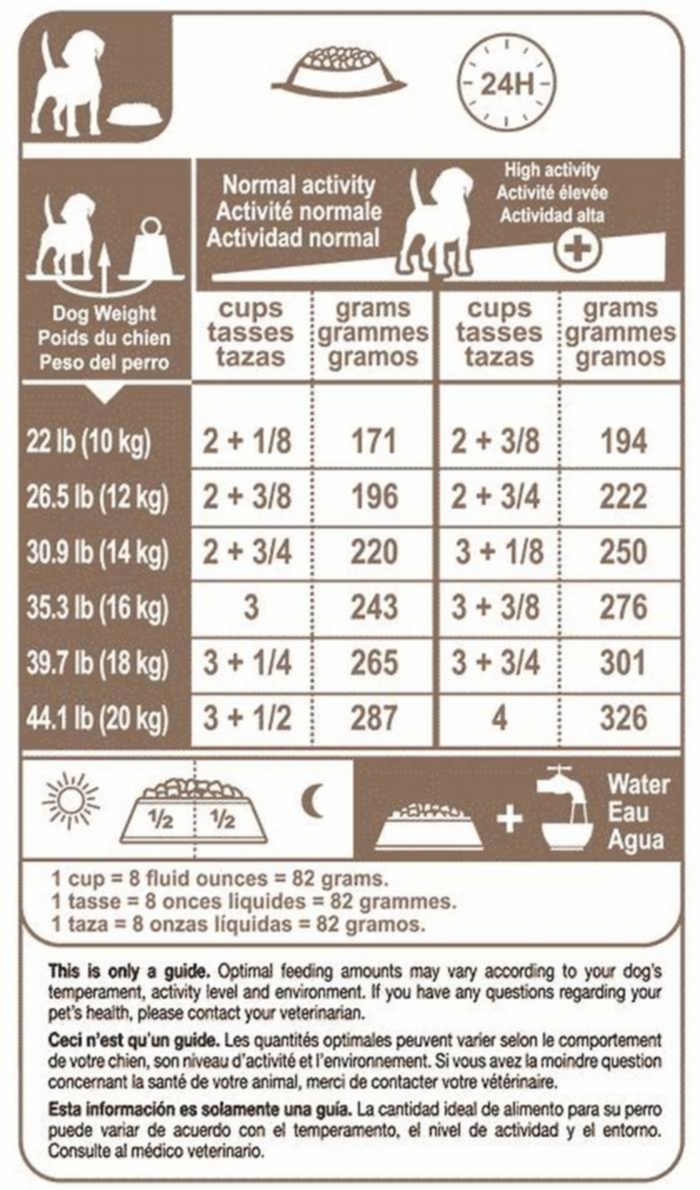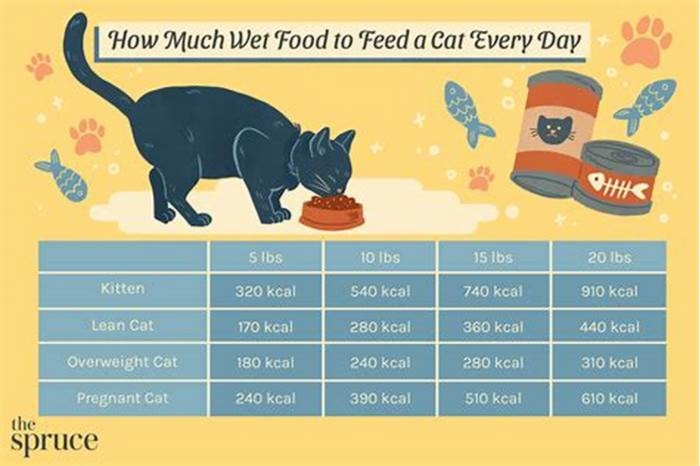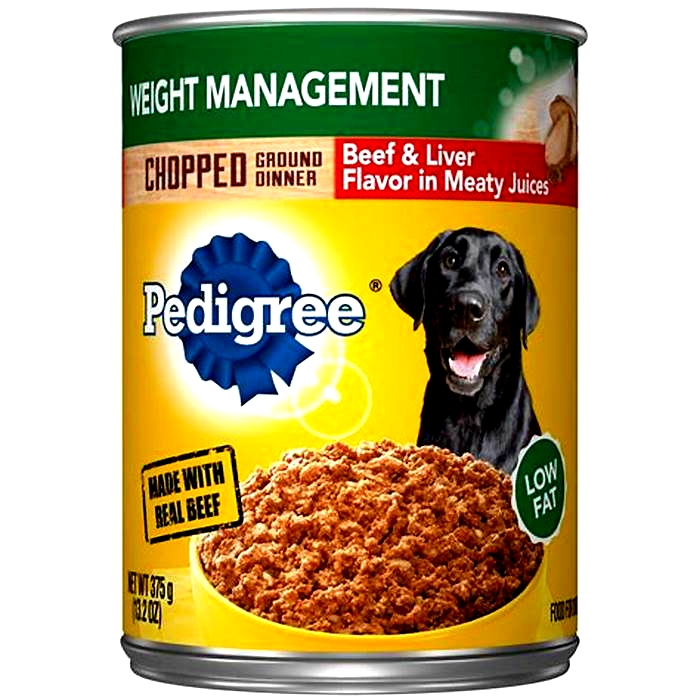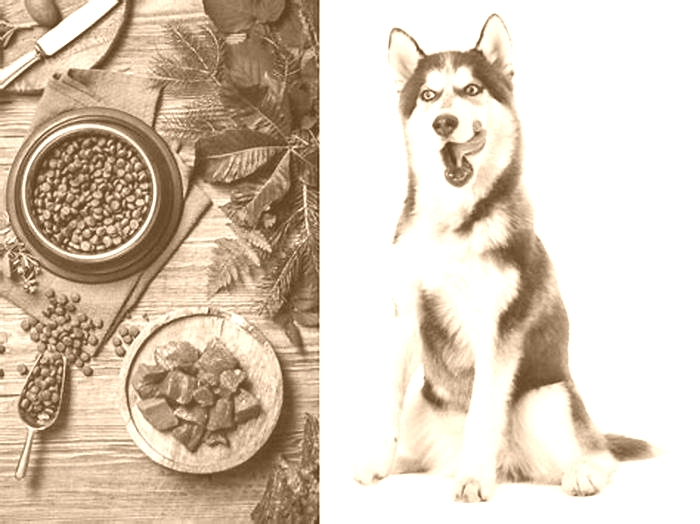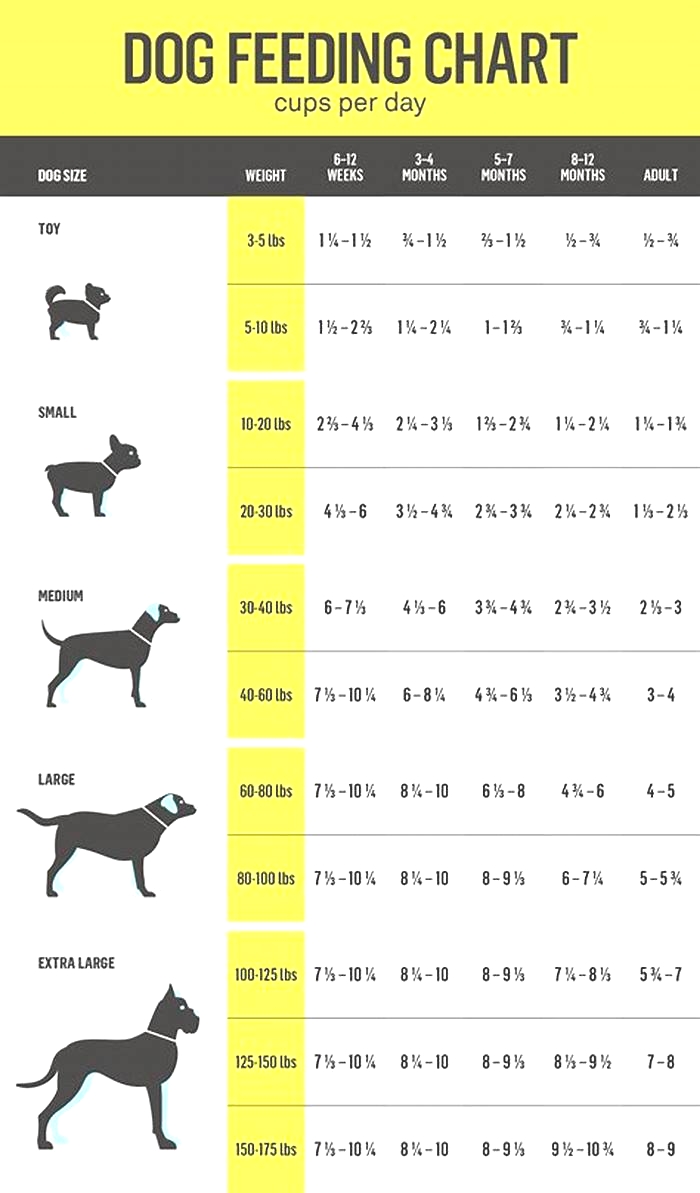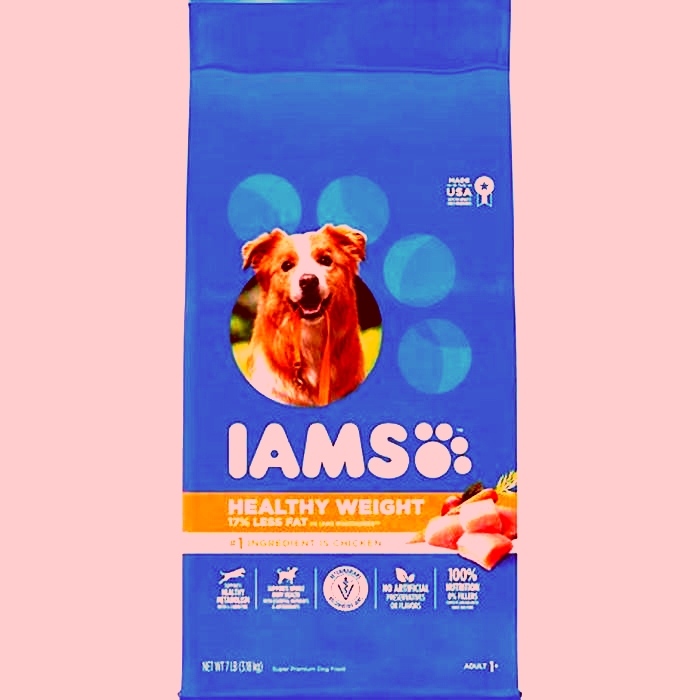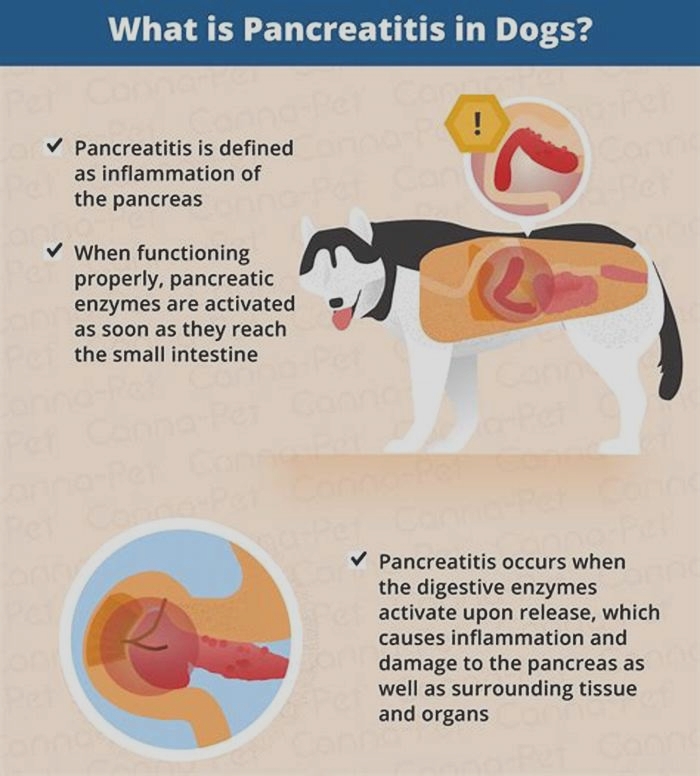Can I crack a raw egg in my dog s food
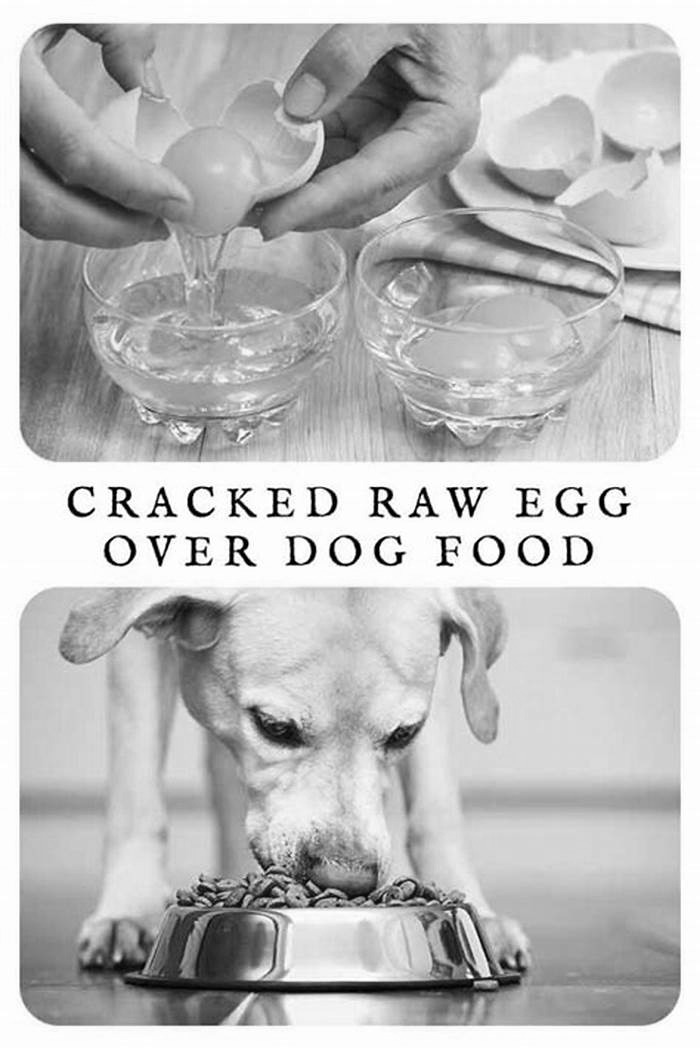
Benefits and Risks of Adding Raw Egg to Dog Food

Whether you feed your dog an entirely raw food diet or are just looking for some fresh supplements to add to your dog's kibble, raw eggs for dogs are a popular choice. There are nutritional benefits to feeding raw eggs though risks as well that you should consider before adding them to your dog's meals.
Can I Feed My Dog Raw Egg?
You'll find differing opinions on whether it's safe to feed dogs raw eggs. Some experts contend that dogs have been eating eggs from nests for centuries and it's only recently that owners have fed them only commercially prepared kibble. On the other hand, veterinarians argue that there are real risks of not only foodborne illness but also nutritional problems inherent with putting a raw egg in dog food.

Risks of Feeding Raw Eggs to Dogs
One of the risks that veterinarians are concerned about is the possibility of foodborne illnesses, such as salmonella. Bacteria like e. coli, listeria, and salmonella can be a problem with any raw food where there is no cooking to kill these pathogens. PetMD does note that there as yet have not been any serious health-related events involving the feeding of raw eggs to dogs. However, this does not mean that one couldn't happen in the future. There's also always the risk to humans when handling raw food, and that should be a consideration if you're not following safe food handling practices.
If your dog is raw-fed, their gastric pH is lower, and better equipped to handle raw eggs and other raw foods than those that are fed kibble. That doesn't necessarily mean dogs that are kibble-fed shouldn't be fed raw eggs, but you may notice some diarrhea or loose stool when first starting to incorporate the raw eggs into a kibble-fed dog's diet.
Biotin Deficiency and Avidin
Another concern about adding raw eggs to a dog's food is the presence of the enzyme avidin. Egg whites are high in avidin, and it can cause problems with biotin absorption. Biotin, or vitamin B7, found in egg yolks, is critical for a dog's health, and disruption in biotin processing can harm cell growth and fat metabolism, as well as affect the health of a dog's coat and skin. Feeding a dog a raw egg occasionally is not likely to cause problems between avidin and biotin, but the more often they are fed, the higher the risk. However, raw egg feeders also respond that biotin deficiency is quite rare and you would have to feed the average dog eight to 10 eggs a day to create the conditions for it to occur.

Eggshell Hazards and Dogs
There's also a concern that allowing a dog to eat a raw egg, including the eggshell, can be a choking hazard. It could also cause dental problems if a shard cuts into a dog's gums. Some raw dog feeders take the raw egg shells and allow them to dry, then run them through a coffee grinder or a blender, thus removing the chance of choking and dental damage. You can mix the eggshell powder you create into their dog food and even keep it in an airtight container for future use.
Nutritional Imbalance
Eggs can also upset a dog's nutritional imbalance, especially if you're feeding them to a smaller dog and more often. While eggs contain many wonderful nutrients, they're also high in cholesterol, although there's little evidence that dogs get the same types of diseases that humans do from cholesterol. Another concern is the digestibility of protein. A study on humans found that when humans ate cooked eggs, they were able to absorb 90% of protein from the eggs whereas they only were able to absorb 50% from the raw eggs. However, while that's a striking difference, it should be noted this was a study on humans, not dogs, and the sample size of five patients for the study is very small.
Benefits of Mixing Raw Eggs With Dog Food
On the other hand, there are many raw dog food enthusiasts who contend that there are more benefits to feeding raw eggs to dogs than risks. Free-range eggs are better than caged eggs, and organic eggs are even better still. The more natural the egg, the better it is for your dog and the healthier it will be for you to eat as well. Some of the benefits of feeding raw eggs include:

- Eggs are an excellent source of protein, linoleic acid, riboflavin, folate, iron, selenium, and vitamins A and B12.
- Essential fatty acids are found in eggs. These nutrients serve as the building blocks for cell membranes and help your dog absorb the vitamins A, E, and K.
- Eggshells contain calcium and phosphorus, which are especially important for growing dogs. The shells also contain protein.
- Cooked eggs are good for dogs, but cooking destroys a portion of the nutritional benefits, such as the amino acids, making raw eggs a better option.
- Mixing raw egg into a dog's kibble can help entice a dog to eat and make it more palatable.
How Many Raw Eggs Can Dogs Eat?
Whether you decide to feed raw or cooked eggs, they should be fed to your dog in moderation. You can start with one a day or every other day and monitor your dog's weight to see if you need to modify this schedule if they start to pack on pounds. You also want to keep an eye on your dog for any signs of vomiting or diarrhea as eggs could possibly upset a sensitive dog's stomach. Another way to determine the proper amount is to keep eggs to 10% of your dog's daily calories, and an egg is about 70 calories.
Is Adding Raw Eggs to Dog Food Healthy?
There are definite pros and cons to the debate over feeding dogs raw eggs. There's no doubt that eggs, whether raw or cooked, provide many beneficial nutrients to dogs. As with any decision about your dog's diet and health, speak to your veterinarian to help you decide how you want to feed eggs to your dog, and make sure you monitor your dog's health for negative, as well as positive, side effects of feeding raw eggs.
2024 LoveToKnow Media. All rights reserved.
Can I Add A Cracked Raw Egg Over Dog Food?
Did you watch Roland from True Detective crack a raw egg over some dog food and wonder if thats something you can do too, or did you perhaps hear it suggested from family or friends who swear theyve done it every day for years?
Either way, cracking a raw egg over your dogs dry dog food every day is not as far-flung a concept as you would imagine, and thousands of dog owners across the globe have asked themselves whether it is safe and if they should start doing it.
Can I Add A Cracked Raw Egg Over Dog Food?
Yes, you can crack a raw egg over dry dog food; however, there are certain risks associated with this that you should understand.
Raw Eggs pose several risks to dogs, with the biggest being the risk of Salmonella. Most of you will be familiar with Salmonella, but for those who arent, it is a bacteria that can cause several digestive-related symptoms such as diarrhea, fever, and stomach cramps.
Salmonella is one of the leading causes of dog food recalls, and many huge dog food brands have recalled their foods over tiny or minimal exposures to Salmonella.
For this reason, most veterinary professionals would not recommend feeding dogs raw eggs and instead would recommend that you cook them first.
However, many humans are comfortable eating raw eggs, and the risk of Salmonella is identical for them than it is for dogs.
This means that some dog owners may be comfortable with that risk or have confidence in the source and storage of their eggs, such as home-reared chicken eggs, and so believe the risk of Salmonella is reduced.
If they are comfortable with the risk of Salmonella, Eggs can be a beneficial addition to the diet of some dogs and can provide valuable nutrition as well as improve the flavor and palatability of their food.
Are There Any Other Risks To Raw Eggs?
Outside of Salmonella, there are two additional risks of Raw Eggs for dogs. The first of these is that regular consumption of raw eggs can cause a Biotin deficiency.
Egg Whites contain an enzyme known as avidin, which can prevent the absorption of biotin into a dogs body.
While a single raw egg is not going to cause any dogs to have a Biotin deficiency, regular consumption, such as every day, could lead to problems.
The third risk of Raw Eggs is more of a general risk around whether the Eggs are still safe to eat and have been stored properly.
Eggs, like any fresh food, go bad over time, and when they do, they could pose risks to dogs, such as other bacterial infections.
Raw Egg Nutrition
Eggs are one of the most nutritious foods that can be given to dogs and contain a balanced mix of valuable nutrition, including protein, fat, and carbohydrates.
On top of these core nutrients, Eggs are also excellent sources of various beneficial vitamins and minerals, including Iron, Vitamin A, Vitamin D, Selenium, and many more.
Moreover, Eggs are almost one of the most bioavailable foods, being comfortably above most other animal-based ingredients like meat or fish.
This means that the nutrition found within the Eggs can be much more effectively absorbed and utilized by a dogs digestive system, which is a factor that many do not take into consideration.
How Often Can I Add A Cracked Raw Egg To Dog Food?
As we mentioned earlier, one of the risks of raw eggs for dogs is a Biotin deficiency. Due to this, even if you are comfortable with the risk of Salmonella, you should not feed your dog raw eggs every day.
Instead, cracking a raw egg over your dogs food may be more appropriate to do once or twice a week.
In addition, the size of your dog should also influence your decision. If you have a large or giant breed dog, the nutrition from the Egg will only be a minor component of their diet.
However, if you have a smaller breed dog or even a toy breed, then cracking a whole egg, especially a large egg, could add a significant amount of calories and nutrition to their diet.
If this is not carefully managed when combined with their traditional kibble, it could lead to some weight-related health issues such as obesity or weight gain.
Mixing Raw Eggs with Dog Food: Pros and Cons of Adding this Superfood to your Pets Diet
Mixing raw egg with dog food can be a nutritious addition to a dogs diet. Raw eggs contain a variety of vitamins and minerals, including vitamin A, riboflavin, and biotin, as well as high-quality protein. They can provide a boost to a dogs coat and skin health, as well as support muscle development. However, it is important to be cautious when feeding raw eggs to dogs, as they can contain harmful bacteria that can cause food poisoning. It is recommended to thoroughly wash the eggs and cook them lightly before mixing them with the dog food to reduce the risk of bacterial contamination.Is it OK to put raw egg in dog food?
Raw eggs can be a nutritious addition to a dogs diet and can provide a boost to their coat and skin health, as well as support muscle development. However, it is important to be cautious when feeding raw eggs to dogs, as they can contain harmful bacteria that can cause food poisoning. It is recommended to thoroughly wash the eggs and cook them lightly before mixing them with the dog food to reduce the risk of bacterial contamination.
It is also important to note that while adding a raw egg to a dogs diet may have some benefits, it is not necessary for a balanced diet. Dogs can obtain all the necessary nutrients from a complete and balanced commercial dog food or a homemade diet formulated by a veterinarian or animal nutritionist. It is always best to consult with a veterinarian before making any changes to a dogs diet.
Can I mix egg with dog food?
Yes, you can mix egg with dog food as a nutritious addition to your dogs diet. Raw eggs contain a variety of vitamins and minerals, including vitamin A, riboflavin, and biotin, as well as high-quality protein. They can provide a boost to a dogs coat and skin health, as well as support muscle development. However, it is important to be cautious when feeding raw eggs to dogs, as they can contain harmful bacteria that can cause food poisoning. It is recommended to thoroughly wash the eggs and cook them lightly before mixing them with the dog food to reduce the risk of bacterial contamination.
How much raw egg should I feed my dog?
Feeding raw eggs to your dog can be a nutritious addition to their diet, but it is important to do so in moderation. Raw eggs contain a variety of vitamins and minerals, including vitamin A, riboflavin, and biotin, as well as high-quality protein. They can provide a boost to a dogs coat and skin health, as well as support muscle development. However, it is important to be cautious when feeding raw eggs to dogs, as they can contain harmful bacteria that can cause food poisoning. It is recommended to thoroughly wash the eggs and cook them lightly before mixing them with the dog food to reduce the risk of bacterial contamination.
So, how much raw egg should you feed your dog? The amount will depend on their size and
breed, as well as their overall health and nutritional needs. It is generally recommended to feed dogs no more than one raw egg per week, as part of a well-balanced diet. This can be mixed with their regular food or offered as a treat.
Can I give my dog raw eggs everyday?
It is generally not recommended to feed your dog raw eggs every day. While raw eggs can be a nutritious addition to a dogs diet, they should be fed in moderation as part of a well-balanced diet. It is generally recommended to feed dogs no more than one raw egg per week.
It is important to note that while adding a raw egg to a dogs diet may have some benefits, it is not necessary for a balanced diet. Dogs can obtain all the necessary nutrients from a complete and balanced commercial dog food or a homemade diet formulated by a veterinarian or animal nutritionist. It is always best to consult with a veterinarian before making any changes to a dogs diet.
Additionally, it is important to be cautious when feeding raw eggs to dogs, as they can contain harmful bacteria that can cause food poisoning. It is recommended to thoroughly wash the eggs and cook them lightly before mixing them with the dog food to reduce the risk of bacterial contamination.

